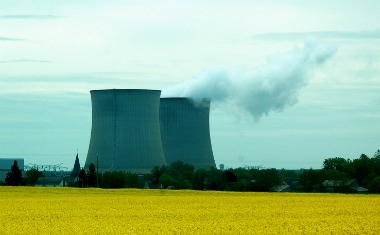The following is a guest essay.
-----
Stabilizing concentrations of greenhouse gases in the Earth's atmosphere at a level that will fulfill the mandate of the UN Framework Concentration on Climate Change to avoid "dangerous anthropogenic interference with the climate system" will require drastic departures from business as usual. Here we introduce one attractive response to this challenge that may seem visionary or idealistic today but that could well become realistic once we reach a tipping point regarding climate change that opens a window of opportunity for embracing major changes.
No silver bullet exists capable of solving the complex and interdependent problems of climate change, sustainability, and economic development. A consensus is emerging, however, that solving these problems will require major changes in existing governance arrangements to eliminate or at least alleviate what the 2006 Stern Review (1) calls the "greatest and widest-ranging market failure ever seen" -- the failure of the market to send proper signals about the real costs of using the atmosphere as a repository for greenhouse gases. This case exhibits the defining features of market failures surrounding open-access resources (2-6). Because emitters allowed to use the atmospheric commons as a repository for the wastes associated with burning fossil fuels at no cost, they have every incentive to use as much of this free factor of production as possible. But the present and future costs to society of this practice are enormous. Estimates of these costs vary. But there is compelling evidence that the eventual costs will exceed the cost of changing our current practices to limit emissions of greenhouse gases by a large margin (1).
Analysts have proposed a variety of forms of carbon taxes and cap-and-trade systems as policy measures to deal with this problem (7, 8). A few measures, like the European Emission Trading Scheme, have been implemented to some degree. But the measures under consideration at present are deeply flawed. In this article, we present an alternative system that has several attractive features, including the capacity to deal fairly with the regressive nature of most carbon taxing systems, to protect the new governance arrangements from political manipulation or corruption, and to contribute to the alleviation of global poverty. Working out the details of the general plan will be an ambitious task, but we think it is important to take the first step and propose a broad strategy having the six principles laid out below.
The core of this system is the idea of a common asset trust (9, 10). Trusts are widely-used and well-developed legal mechanisms designed to protect and manage assets on behalf of specific beneficiaries (11). Extending this idea to the management and protection of a global commons, such as the atmosphere, whose owners/beneficiaries include all people alive today as well as future generations, is a new but straightforward extension of this idea. Because the atmosphere is global, the Earth Atmospheric Trust would be global in scope. Initial implementation at a regional or national scale may be necessary and appropriate, however, as we build toward a global system. We cannot examine in detail the path that implementation of the system might take, or how the many institutional, political, and administrative details would be addressed. Our purpose here is to present an integrative idea that has many positive features as the basis for further discussion in the post-Kyoto world.
The trust arrangement we envision has six basic features together with four special features and precautionary measures.
Basic features:
